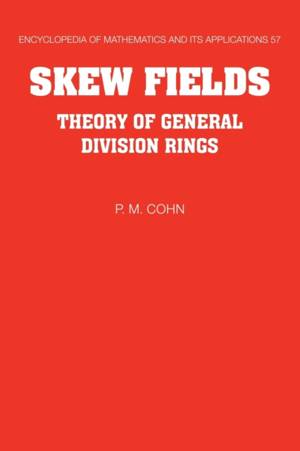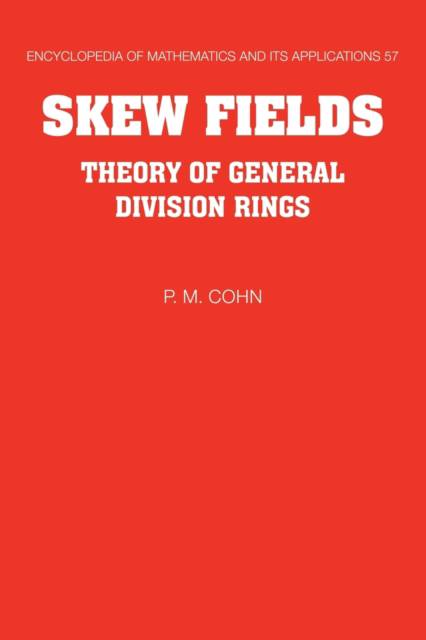
- Afhalen na 1 uur in een winkel met voorraad
- Gratis thuislevering in België vanaf € 30
- Ruim aanbod met 7 miljoen producten
- Afhalen na 1 uur in een winkel met voorraad
- Gratis thuislevering in België vanaf € 30
- Ruim aanbod met 7 miljoen producten
Zoeken
Omschrijving
Algebraists have studied noncommutative fields (also called skew fields or division rings) less thoroughly than their commutative counterparts. Most existing accounts have been confined to division algebras, i.e. skew fields that are finite dimensional over their center. This work offers the first comprehensive account of skew fields. It is based on the author's LMS Lecture Note Volume "Skew Field Constructions". The axiomatic foundation and a precise description of the embedding problem precedes an account of algebraic and topological construction methods. The author presents his general embedding theory with full proofs, leading to the construction of skew fields. The author has simplified his treatment of equations over skew fields and has extended it by the use of matrix methods. A separate chapter describes valuations and orderings on skew fields, with a construction applicable to free fields. Numerous exercises test the reader's understanding, presenting further aspects and open problems in concise form. Notes and comments at the end of chapters provide historical background. The book will appeal to researchers in algebra, logic, and algebraic geometry, as well as graduate students in these fields.
Specificaties
Betrokkenen
- Auteur(s):
- Uitgeverij:
Inhoud
- Aantal bladzijden:
- 520
- Taal:
- Engels
- Reeks:
- Reeksnummer:
- nr. 57
Eigenschappen
- Productcode (EAN):
- 9780521062947
- Verschijningsdatum:
- 15/05/2008
- Uitvoering:
- Paperback
- Formaat:
- Trade paperback (VS)
- Afmetingen:
- 156 mm x 234 mm
- Gewicht:
- 721 g

Alleen bij Standaard Boekhandel
+ 285 punten op je klantenkaart van Standaard Boekhandel
Beoordelingen
We publiceren alleen reviews die voldoen aan de voorwaarden voor reviews. Bekijk onze voorwaarden voor reviews.











